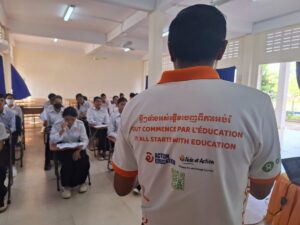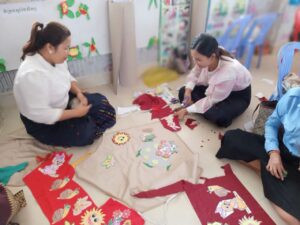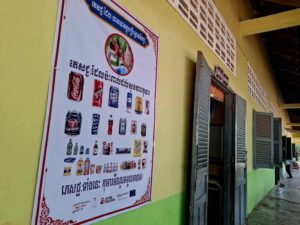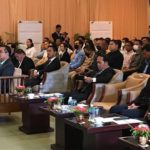The 5th National Conference addressed the learning crisis and improving primary education in rural areas by engaging stakeholders to enhance lifelong learning, support teachers and strengthen education reforms
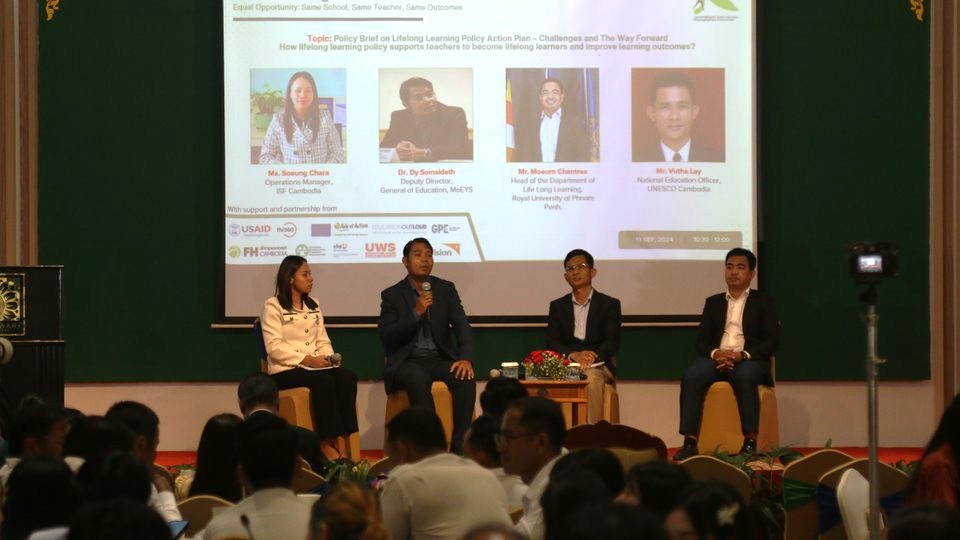
A coalition of education organizations hosted the 5th National Conference to address the learning crisis and gap in the implementation of the Lifelong Learning policy, with a focus on improving the education of boys and girls in primary education in rural areas.
The conference, which took place on September 19 and 20, aimed at bringing together relevant stakeholders to discuss transforming education to improve the learning outcomes of all primary-aged pupils living in rural areas.
Oung Borat, Secretary of State at the Ministry of Education, Youth and Sport, said the conference will provide more opportunities for researchers, policy planners, practitioners and relevant stakeholders to study and gain input to respond to the goals.
“It includes ensuring that all children can learn, increasing the learning outcome of students through lifelong learning, improving the results of reading, maths and science at the primary education level, supporting teachers, ensuring all schools perform, and supporting parents to support their children,” he said.
In the 2023-2024 academic school year, the net enrolment in primary education reached 99.6 percent (99.7 percent for boys and 99.6 percent for girls), reflecting a 3.8 percent increase compared to the previous school year.
Vorn Samphors, Country Director of Aide et Action Country Director, said that the government reform and the education sector strategy that has been implemented are important. It focuses on teachers and the curriculum, as well as on schools, and also includes school governance, learning and teaching for each student.
“This is a better commitment, but we also want to see more funding for sub-national administrations and schools to develop the indicators, as well as the standards we want,” he said. “Also, sub-national authorities need to use various innovative methods to ensure that resources and other ways are utilised in support of this work.”
The event was organised by NGO Education Partnership, Aide et Action, Food for the Hungry, International Cooperation Cambodia, DVV International, United World Schools and World Vision International.
Lifelong Learning Cities
Dy Samsideth, Secretariat of the Lifelong Learning Committee, said to implement the lifelong learning cities policy, there is a need to create a lifelong learning club where both youth and older people can meet and discuss certain topics.
“We connect people who want to give and people who want to learn, and we want to connect them to a lifelong learning club at school,” he said, adding that when “connecting” these groups, an explanation of its benefits to them needs to be given.
“No one wants to work with us if there’s no benefit for them,” he said. “If our idea is good, they will accept it and follow, so we will be successful together, reflecting the success of our goal in 2030 ‘Lifelong learning for all’.”
Besides lifelong learning clubs, Samsideth said that communities should have a lifelong learning centre where residents can study, read and share information. “It encourages people to like learning and understand that you cannot stop learning, because learning is life. No matter what position you are in, you have to keep learning,” Samsideth noted.
Lay Vutha, National Programme Officer at UNESCO, said as Cambodia moves to becoming a higher-middle-income country by 2030 and a high-income country by 2050, skills are the main focus. At the same time, community education is key as the nation’s literacy rate is 85 percent.
“Those working in the community, industrial and restaurant sectors are the main catalysts. If we provide them with skills, they can become skilled labour, which allows them to get a better salary,” he said. “It drives their family’s income, which will benefit our community and society.”
Samsideth said that if the nation receives a Certificate of Lifelong Learning Cities from UNESCO, there will be no one unable to access education, resulting in a higher-skilled workforce working in better jobs.
In addition, when the nation gains lifelong learning cities status, it will earn stronger trust from investors. “Tourists will also want to visit as they consider the nation has no violations since it’s full of educated people,” he added.
(Article was published on Kiripost / Publication date 20 September 2024)




